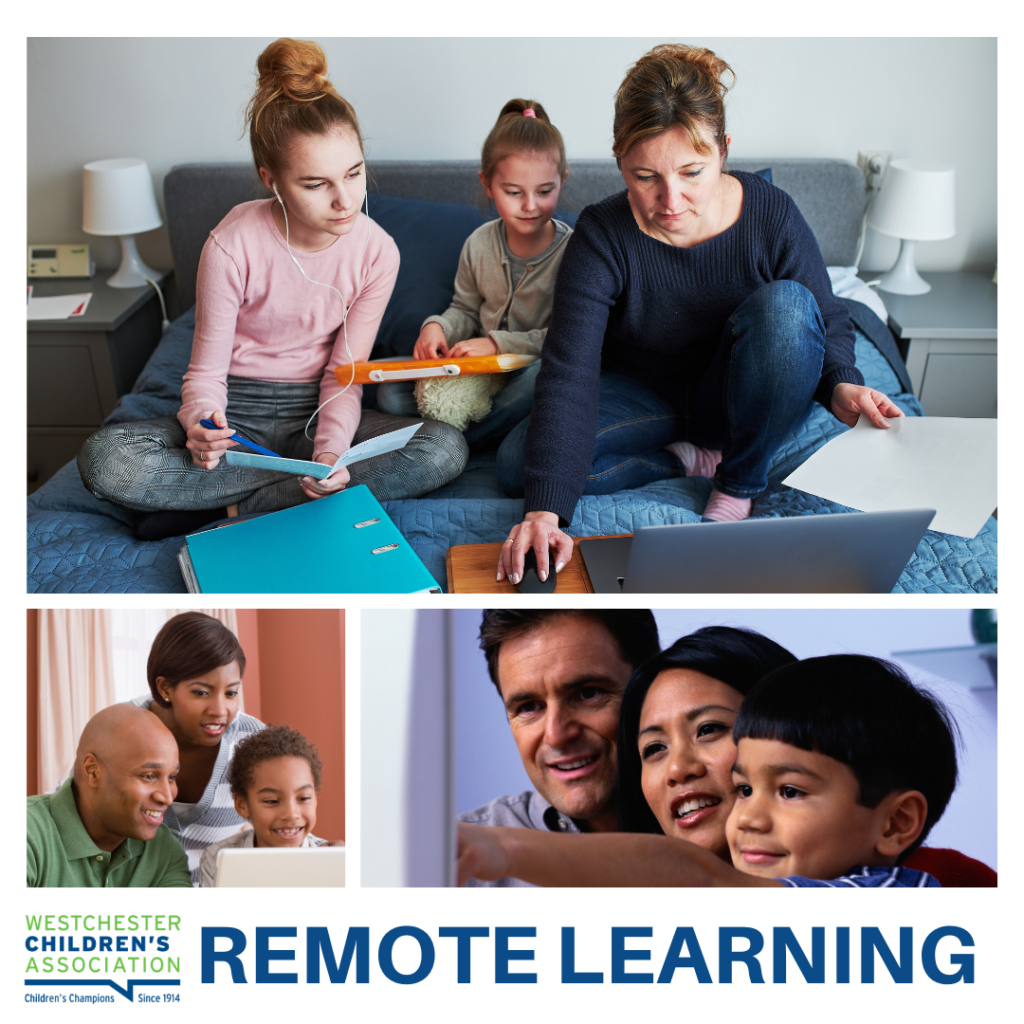Hi! My name is Sydney Moraitis and I am in my final year of graduate studies at Pace University towards earning my Masters of Public Administration with a concentration in Nonprofit Management. I began working with WCA through a partnership with WCA and Pace University. My professor and mentor at Pace University, Dr. Gina Scutelnicu invited me to be a part of the digital access research project which has turned into my graduate capstone: the final paper and analysis will complete my degree.
This survey that we are developing is so important because, although the Digital Divide is not a new phenomenon, it has been exacerbated by the COVID-19 pandemic as students and families rely more on the use of technology to work and learn. But the unfortunate reality is that not everyone currently has the resources or the skills to benefit from what modern technology has to offer leaving too many children and families behind.
Pace University and WCA want the survey to address multiple levels of disparity of digital access and digital literacy. Digital access encompasses material devices, internet access, and various software to perform online activities while digital literacy relates to how lack of digital access and know-how creates differences in the skills and uses of Information and Communications Technology (ICT). So our survey asks questions of parents and guardians about the availability of devices such as computers and tablets in their homes, the availability and adequacy of their internet access, and also what they are able to do when they are online. One interesting question we include in the survey is about how families would prefer to get computer training. We hope responses from households to this question will allow us to determine how and where to provide resources in a way that’s most convenient and trouble-free for them.
Digital Access Survey Design
It’s very important that the results of this survey represent the experiences of as many communities in Westchester County as possible and is representative of the socioeconomic and diverse demographics of families here. When applying for Institutional Review Board (IRB) approval at Pace University, I worked with my professor to address the following areas in survey design and distribution:
- One way we achieve this is by making the survey available in English and Spanish as WCA did in 2020.
- It is also important to make the survey available in print as well as online because limiting access through the internet will screen out those with the greatest need.
- The online survey uses a web-based software, Qualtrics, which can be completed on a computer as well as on a mobile device which makes it even more accessible.
- We are working to develop a distribution plan through our networks of partners so that we can reach as many communities and encourage equity in response and availability to develop representative results.
- Finally, maintaining the privacy of participants is of utmost priority so responses will be anonymous with no information that could be traced back to those who are helping us get vital information.
Goal
Our goal for this survey is to collect information about digital access and literacy that represents the experiences of students and families in Westchester County to the best of our ability. We hope that this data will help us determine the areas of greatest need for Westchester families so that community leaders can address these needs through technology, internet access, training, or support. I am grateful that we were able to collaborate with other Westchester organizations through a Digital Access Workgroup when creating the survey questions as it truly is a team effort. It’s inspiring to know that so many people are passionate about combating the Digital Divide. I feel privileged to be working with WCA in this effort and couldn’t have asked for a better team!
 See the results of WCA’s 2020 Remote Learning Survey.
See the results of WCA’s 2020 Remote Learning Survey.
Read more about WCA’s Digital Access advocacy.
WCA eBulletin #21 articles:
- Raise the Age has new challenges
- Our Hope Quilt is gathering support for home visiting.


